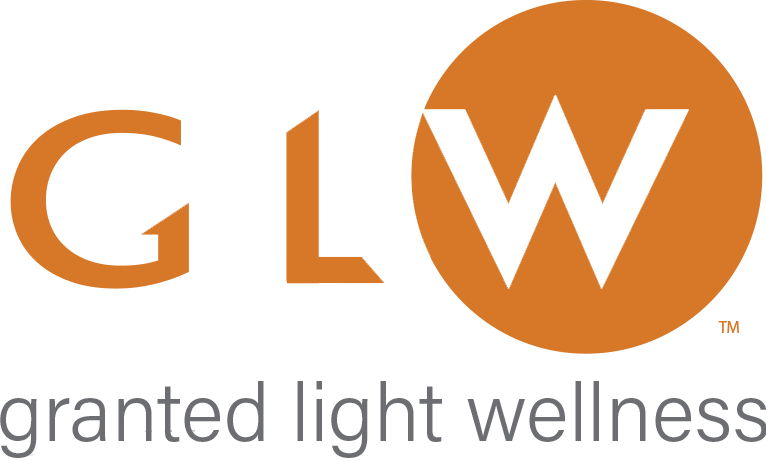
PBM Research
Explore the science behind Photobiomodulation therapy and discover how research continues to advance this innovative wellness technology.
Research Opportunities
Granted Light's core PBM technology is developed in Canada by our dedicated team of engineering physicists, computer scientists and caregiver specialists. Our mission is to provide cost effective PBM solutions, and as part of that goal we provide at nominal cost to researchers at accredited universities our core PBM technology, with the required modifications, to be used in their research projects.
If you are a research scientist looking for funding or equipment, we would love to hear from you!
Contact us at sales@grantedlight.care or call 1-888-581-3198
Published Research Studies
Below are links to research articles and publications regarding Photobiomodulation. These studies are independent of Granted Light Wellness and are shared for informational purposes only. They do not reflect or imply any relationship between Granted Light and the research institutions or authors.
General Research
Photobiomodulation for the Brain: A Systematic Review
Published by Springer Nature, 2023
DOI: 10.1007/978-3-031-36231-6
This comprehensive review analyzes 383 studies on photobiomodulation (PBM) therapy applied to the brain, including in vitro, in vivo, and clinical research. PBM uses low-level red to near-infrared light to stimulate mitochondrial activity and enhance brain function. The review identifies optimal wavelengths and fluence levels for various conditions, including depression, dementia, Parkinson's disease, and traumatic brain injury. It also highlights PBM's potential to improve cognitive performance in healthy individuals. Despite promising results, the authors note that more controlled human trials are needed for broader clinical adoption.
Read Full Review →Note: This research is independent of this website and is shared for informational purposes only.
Mental Wellness Research
Photobiomodulation for Depression, Anxiety and PTSD: the MGH Brain PBM Clinic Dose Map
Harvard Medical School; MGH Division of Neuropsychiatry, Massachusetts General Hospital
Presentation and Clinical Research
This presentation and associated research explore the use of transcranial photobiomodulation (t-PBM) as a non-invasive treatment for major depressive disorder (MDD), anxiety disorders, and PTSD. The study reviews clinical trials and introduces a dose-response mapping approach to personalize treatment. Findings suggest that t-PBM may offer antidepressant, anxiolytic, and cognitive benefits, especially for patients who do not respond to conventional medications.
Note: This research is independent of this website and is shared for informational purposes only.
Transcranial Photobiomodulation Treatment: Significant Improvements in Four Ex-Football Players with Possible Chronic Traumatic Encephalopathy
Journal of Alzheimer's Disease Reports, 2023
DOI: 10.3233/ADR-220022
This study presents a case series involving four former American football players with suspected chronic traumatic encephalopathy (CTE). Using transcranial photobiomodulation (tPBM) therapy with near-infrared light, researchers observed significant improvements in cognitive function, mood, PTSD symptoms, sleep quality, and pain. Functional MRI and spectroscopy data supported these clinical findings. Some participants maintained gains through continued home-based treatments. The results suggest that tPBM may be a promising non-invasive therapy for managing symptoms of traumatic encephalopathy syndrome (TES).
Read Full Paper →Note: This research is independent of this website and is shared for informational purposes only.
Neuro-rehabilitation Research
Transcranial Near Infrared Light Stimulations Improve Cognition in Patients with Dementia
Aging and Disease, Vol. 12, Issue 4, 2021
DOI: 10.14336/AD.2021.0229
This study explored the use of transcranial near-infrared (tNIR) light therapy in patients with mild to moderate dementia. Over 8 weeks, participants receiving active tNIR treatment showed significant improvements in cognitive tests, sleep quality, mood, and daily functioning. The treatment was well tolerated and showed promise for home-based care.
Read Full Paper →Note: This research is independent of this website and is shared for informational purposes only.
Photobiomodulation Therapy for the Treatment of Multiple Sclerosis: The Effect of PBMT on the Immune Response and Muscle Function
University of Wisconsin-Milwaukee; Marquette University
Doctoral Dissertation, University of Wisconsin-Milwaukee, 2020
This study investigates the effects of photobiomodulation therapy (PBMT) on immune modulation and muscle function in individuals with relapsing-remitting multiple sclerosis (RRMS). PBMT was shown to reduce pro-inflammatory markers such as IFN-γ and nitrite, while increasing anti-inflammatory cytokines like IL-10. Muscle function assessments revealed improvements in strength and recovery, suggesting PBMT may serve as a promising adjunct therapy for MS. The study also highlights the importance of dose optimization and individual variability in treatment response.
Read Full Paper (PDF) →Note: This research is independent of this website and is shared for informational purposes only.
Photobiomodulation Treatment of Parkinson's Disease within an Interdisciplinary Integrative Approach: The Way Forward for Meaningful Improvement?
University of Sydney; Sydney Adventist Hospital; University of Western Sydney; Saltmarche Health and Associates; Gaitway Neurophysio
Journal of Personalized Medicine, 2024
This case series explores the use of photobiomodulation (PBM) therapy in Parkinson's disease patients across Canada, Germany, and Australia. The interdisciplinary approach combined abdominal and transcranial PBM with exercise, dietary guidance, and medication monitoring. All participants showed improvements in motor and non-motor symptoms, including gait, balance, cognition, and fine motor control. The study emphasizes the importance of personalized, integrative care in managing Parkinson's disease and suggests PBM as a promising adjunct therapy.
Read Full Paper (PDF) →Note: This research is independent of this website and is shared for informational purposes only.
World Association of Photobiomodulation Therapy
Granted Light Wellness is a proud member of the WALT (World Association for Photobiomodulation Therapy). We urge anyone interested in learning more about the current research behind PBM to visit their comprehensive resources.
WALT provides access to existing studies that span a wide range of applications, including:
- Alzheimer's research and cognitive health
- Wound care and tissue healing
- Pain management and inflammation reduction
- Sports performance and recovery
- Mental health and wellness